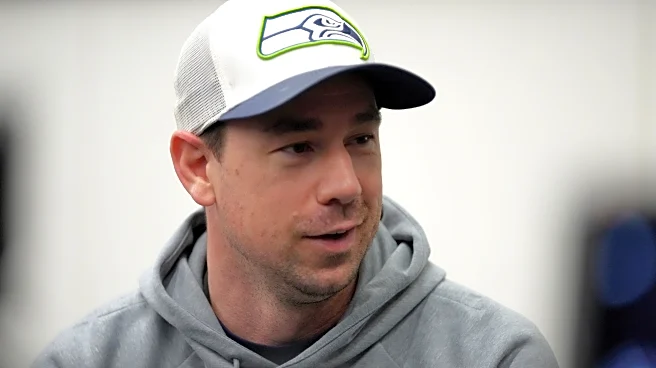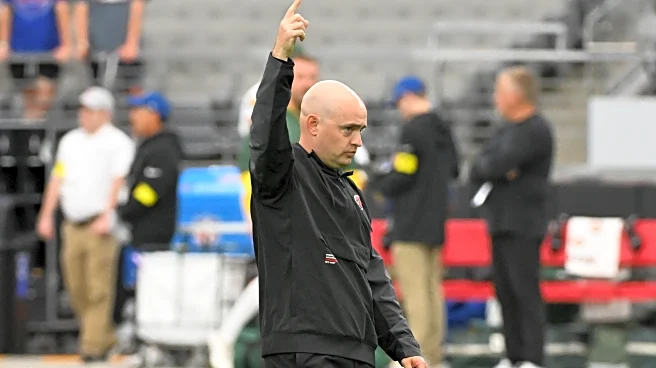What is the story about?
What's Happening?
Nike has announced plans to reduce its corporate workforce by approximately 1% as part of a strategic turnaround under CEO Elliott Hill. This decision, reported by CNBC, is aimed at realigning the company to focus more on sports and sports culture, enhancing connections with athletes and consumers. The layoffs will not affect Nike's EMEA and Converse businesses, though the exact number of jobs impacted remains unclear. As of May 31, Nike employed around 77,800 people globally, including retail and part-time staff. Previously, in February, Nike had cut 2% of its workforce, over 1,600 jobs, to reduce expenses amid declining demand. The company has stated that these changes are designed to set Nike up for future success and innovation. Employees will be informed of changes through one-on-one conversations by September 8, with new roles taking effect on September 21.
Why It's Important?
Nike's decision to reduce its workforce is significant as it reflects broader trends in corporate restructuring and cost management in response to market conditions. By focusing on sports culture and consumer engagement, Nike aims to strengthen its brand and market position. This move could impact employee morale and job security, but it also signals potential growth and innovation opportunities for the company. The restructuring may influence Nike's competitive stance in the global market, affecting stakeholders such as investors, employees, and consumers. The strategic realignment could lead to improved operational efficiency and product offerings, potentially boosting Nike's market share and profitability.
What's Next?
Nike plans to implement these workforce changes by September 21, with employees being informed of their new roles or transitions by September 8. The company will facilitate remote work for corporate employees in the U.S. and Canada to accommodate these discussions. Stakeholders will be watching closely to see how these changes affect Nike's performance and market strategy. The company's focus on sports culture and consumer connection may lead to new product developments and marketing initiatives. Investors and analysts will likely monitor Nike's financial results and market response to assess the effectiveness of this strategic shift.





![Daily Slop: 12 Feb 26 – New Commanders OC David Blough: “How do we get Terry [McLaurin] 10 targets a game?“](https://glance-mob.glance-cdn.com/public/cardpress/binge-magazine-card-generation/spaces/US/en/sb-nation/images/ppid_2cf3d240-image-177091266842313096.webp)










